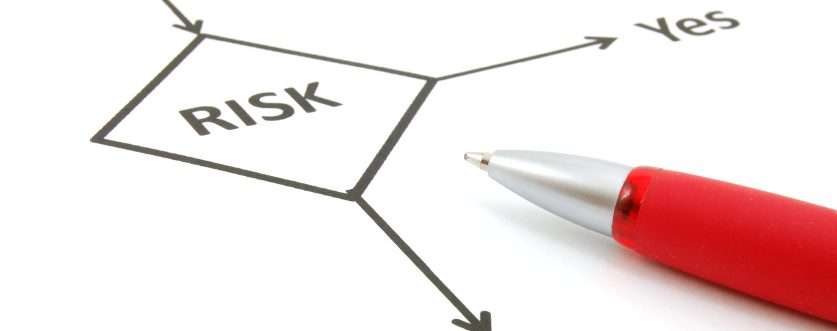![]()
I was in Las Vegas last weekend on family business, and it reminded me about the meaning of taking a risk. Most people there seemed to be familiar with taking a risk if that means gambling. To be a little more precise, gambling means making a deliberate decision to speculate or commit resources to something when you have little or no control. This makes sense if you are, for example, playing blackjack. You decide how much you want to bet. While you don’t have control over the cards you are dealt, you can choose to stay at a certain number or ask for another card in the hopes of getting closer to 21. And, if you’re really skilled, you may have some idea about what that card might be. But, gambling is mostly speculative. You make a wager based on what you are willing to give up if you lose.
Is taking a risk the same thing? Risk is often used synonymously with endanger, hazard, jeopardize, and yes, gamble. But then what about a calculated risk? Somehow that seems to imply a lesser risk. The outcome may the same, you just may have thought about it a little more and decided to do it anyway.
During the weekend, I also happened to be reading a book about an author’s surfing days as a young man growing up. It was full of examples of risk taking – his travels to far off countries in search of the perfect wave, paddling out on the ocean only to hit coral reefs and rip currents, the sheer abandonment of hitting the road with no plan in mind other than finding the next place to surf. It all sounded wonderful and nostalgic. But, as the author acknowledged, he was a risk taker, often to his detriment and those around him. These weren’t mostly calculated risks. Most of his risks were spontaneous and rash with no thought to the future except finding that perfect wave.
Is there a personality type who takes more risks? A Harvard Business Review piece looked at gender and risk, and said the literature shows that men are more inclined to take risks than women. And, their reactions to risk correlated to their stress levels. The higher for men, the more risks they are willing to take. For women, stress is a risk decreaser. This may be attributed to physical differences in the brain and the way it computes risks. The article also found that men and women may perceive risk differently, and so it might be that women take as many risks as men, but they – and society – may view them differently.
There may also be certain personality types more prone to be risk takers. Certainly, the author of the surfing book seemed to fit that mold. He might be called a “sensation seeking” personality – somebody looking for a novel experience with the willingness to take risks for the sake of such experiences. Risk taking may not be the primary objective, but it’s the price to pay for the experience.
Is there a way to cultivate being more of a risk taker if you don’t have a personality that trends that way? Let’s assume for a moment we’re not talking about reckless risk taking, but rather simply getting out of your comfort zone. Here are a few benefits to think about:
Risks can spur change. Taking a risk can embolden you to go beyond the limits of what you think you are capable of, it pushes the envelope. Whether this is a physical feat – such as running a race or catching a 10 foot wave – or something else that pushes your capacity, taking that risk can be a catalyst for change. Even if you aren’t successful, just the act of feeling brave enough to take the risk may be enough to encourage you to try something again. With this change, you may raise a new bar, and now this becomes your new standard.
Risk is a teacher. You learn a lot of about yourself if you try something new and succeed. Or fail. Often failure can be the biggest teacher of all. There is sometimes no other way to learn than to take a risk, try something new, expand your mind, go beyond your limits.
Risk is a reward. There is wisdom in the saying that you will miss one hundred percent of the baskets that you do not take. You have to take risks to create experiences, to be engaged in life and to expand your world.
So, think about how to take more risks to help you grow your own life. Who knows, you might just catch that perfect wave.
Claudia Keith is part of the GovLoop Featured Blogger program, where we feature blog posts by government voices from all across the country (and world!). To see more Featured Blogger posts, click here.


NIce article, Claudia!
“Only those who risk going too far can possibly find out how far they can go.”
— T.S. Eliot
Thanks Christina!